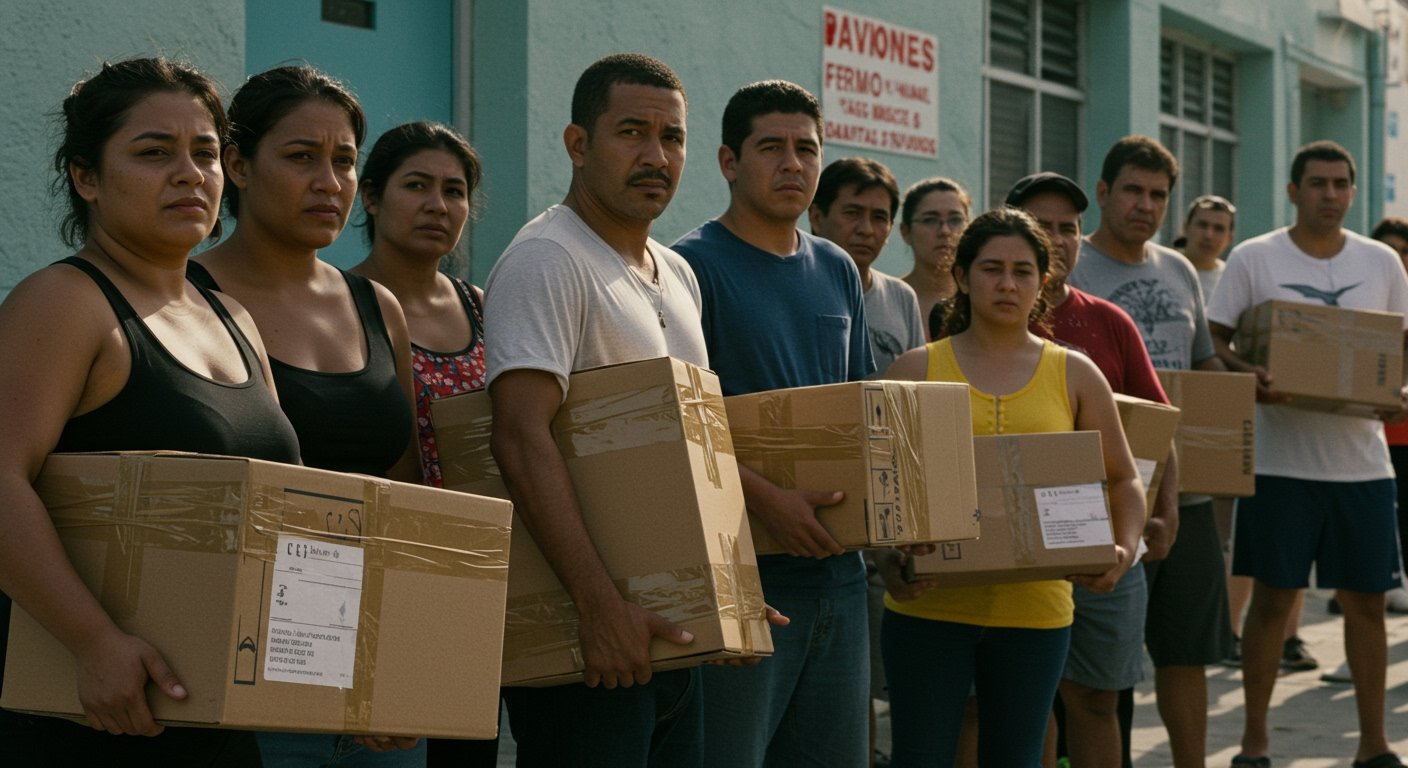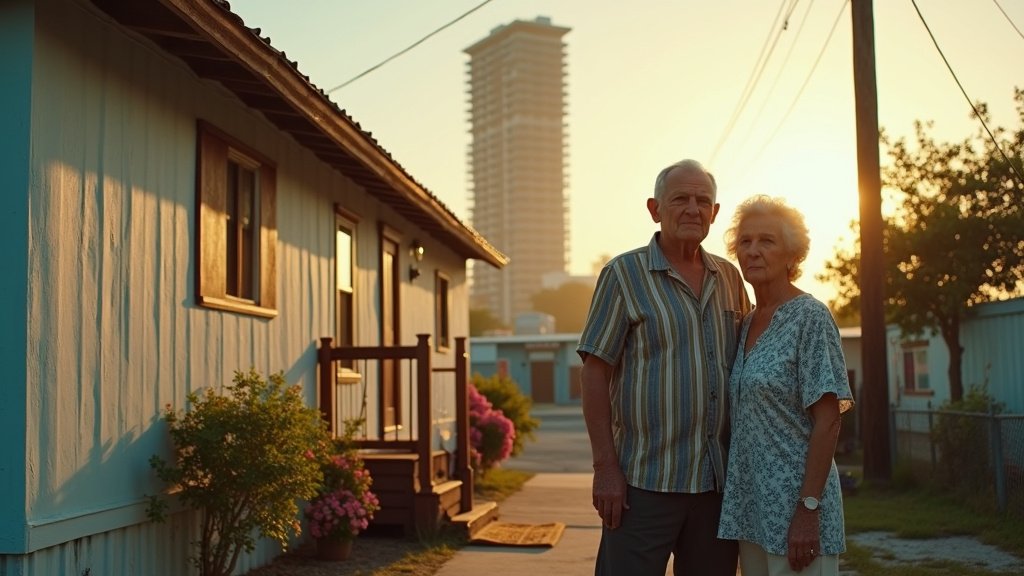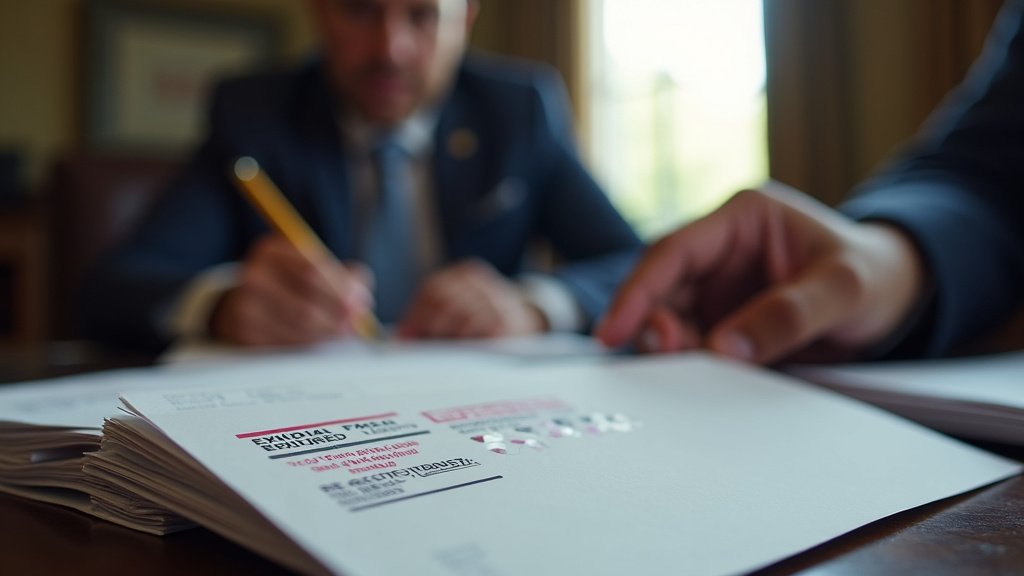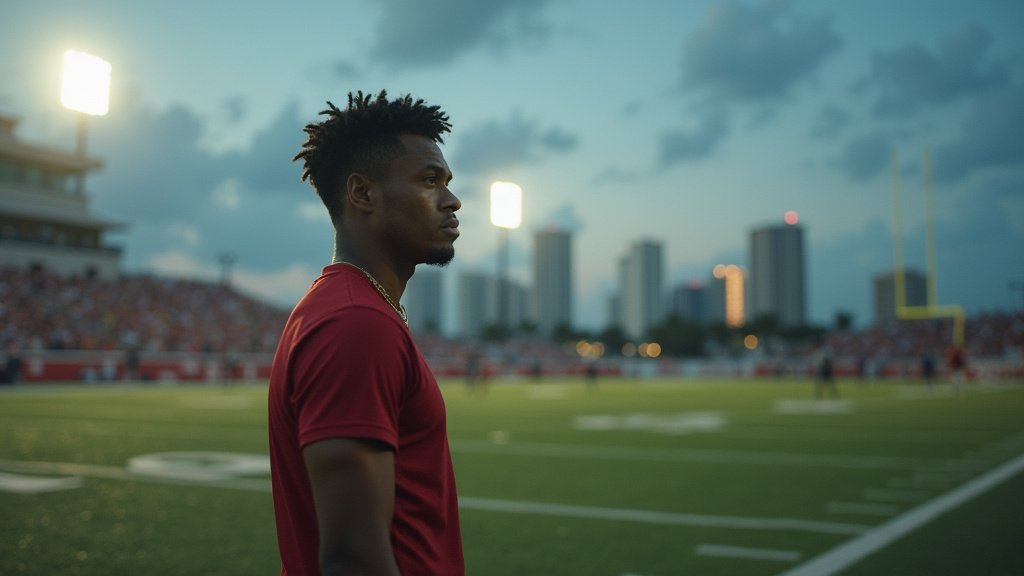MIAMI – In the sweltering Miami heat, a line stretches outside a Cuba Max location, not for concert tickets or a product launch, but for a far more profound purpose: sending vital packages to family and friends in Cuba. This queue, a daily ritual for many in the Cuban diaspora, was recently chronicled in a report by the CiberCuba Editorial Team, published on Sunday, June 22, 2025, at 08:02, offering a poignant glimpse into the enduring connection between the island and its expatriates.
The CiberCuba account, drawing inspiration from a heartfelt Facebook post by young Cuban Christian Arbolaez, portrays the waiting line as something far more significant than a mere queue. Arbolaez’s evocative description labels it “a piece of island embedded in foreign land,” a microcosm of Cuba transplanted onto American soil, brimming with stories, shared experiences, and the unspoken understanding that binds those separated by geography but united by heritage and necessity.
The Human Tapestry of the Line
The individuals who populate this queue represent a diverse cross-section of the Cuban diaspora, each with their own reasons for undertaking this routine. They come bearing boxes packed with essentials – food, medicine, clothing, and increasingly, items like generators necessitated by the chronic instability on the island. The act of waiting becomes a communal experience, marked by shared frustrations over logistical hurdles and customs regulations, but also by camaraderie, mutual support, and the exchange of news and anecdotes from both sides of the Florida Strait.
Within the line, stories unfold, revealing the specific challenges faced by families in Cuba and the lengths to which those abroad will go to help. One woman, her face etched with concern, waits to send a small generator. She explains that persistent blackouts in Cuba mean her mother cannot keep food fresh, rendering refrigerators useless for extended periods. This generator is not a luxury; it is a lifeline, a direct response to the daily struggle for basic necessities on the island.
Another poignant story is that of a former doctor from Cuba. After years of waiting and navigating complex bureaucratic processes, she finally managed to reunite with her husband in the United States, a journey that took six years to complete. Now, settled in Miami, she stands in line, sending packages back to the family she left behind, a testament to the enduring ties that transcend political systems and geographical distance. Her presence in the queue underscores the sacrifices made and the ongoing responsibilities felt by the diaspora towards their loved ones.
More Than Just Boxes
The packages themselves are heavy, both literally and metaphorically. They carry not just goods but hope, love, and the tangible assertion that those in Cuba are not forgotten. The CiberCuba report and Arbolaez’s post highlight the atmosphere of the wait – the oppressive Miami heat is a physical challenge, but it is overshadowed by the emotional weight of the errand. There are unwritten rules that govern the queue, a silent code of conduct developed among regulars, ensuring efficiency and perhaps a degree of fairness in a process that is often fraught with uncertainty and delay.
These interactions, the brief conversations, the shared sighs of exasperation, the quiet moments of reflection, collectively paint a vivid picture of the diaspora’s reality. It is a life lived across borders, deeply invested in the welfare of those still on the island. The queue becomes a temporary community bound by a common purpose, a place where the concerns of Havana, Santiago, or Holguín feel as immediate and pressing as those of Miami.
An Enduring Connection
The act of sending packages is a fundamental way the Cuban diaspora maintains connection and provides direct support. It circumvents official channels that can be unreliable or prohibitive and ensures that essential items reach those who need them most. The volume of packages flowing from places like Miami speaks volumes about the severity of the conditions in Cuba and the profound sense of responsibility felt by those who have left.
The report culminates with a powerful sentiment, echoing the words of Christian Arbolaez, capturing the essence of this ongoing connection: Cubans in the diaspora carry Cuba with them. “In our hearts. In the line. In every box we send.” This phrase encapsulates the fusion of identity, purpose, and action that defines this community. The homeland is not just a memory or a distant place; it is an intrinsic part of their identity, manifested in the physical act of queuing and packing boxes, in the solidarity found in line, and in the constant presence of Cuba in their thoughts and emotions.
This scene outside the Cuba Max in Miami, though seemingly mundane, is a powerful symbol of resilience, familial love, and the complex, often challenging, relationship between Cuba and its vast diaspora. It is a reminder that for countless individuals, the connection to the island remains active, vital, and deeply personal, sustained one package, one queue, one act of love at a time.





